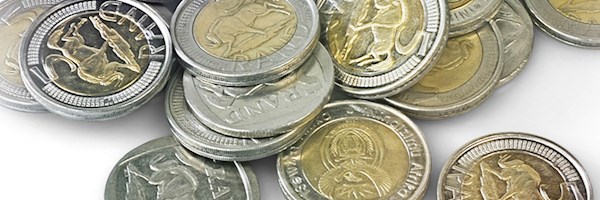The weaker rand has made property far more affordable to foreign buyers and although some are undoubtedly going to take the bait, there is a downside.
Although the rand has strengthened somewhat since January this year when it hit a low of R18 to the dollar, it's still trading well above R16 to the dollar, roughly $4 more than at the beginning of last year. The news may not be good for South Africans in general because of the costs of importing food and petrol, but it's certainly great for foreigners who have been considering investing in a home in this country.
A R4-million home will now cost an American approximately $250 000 and a R10-million property roughly $625 000. To put this into perspective, last year the average price of an apartment in Manhattan, New York was $1.87-million which equates to approximately R30-million. While it's obvious that not every wealthy American is going to be pounding on South Africa's property door, the fact that high-end properties here are a lot less expensive than those in other locations around the world should, at least in theory, boost the market.
Dr Andrew Golding, CEO of the Pam Golding Property Group backs this up when he says: “Both high net worth locals and the few foreigners interested in buying property are perceiving value based on a comparison between South Africa and its exclusive and best properties and comparable properties around the world. For example, a home in Bishopscourt in Cape Town valued at R25-million is the equivalent of a one bedroom apartment in Knightsbridge in London, and in effect this means one is paying one tenth of the equivalent price of a similar property in London, New York or St Tropez.”
Lew Geffen, Chairman Lew Geffen Sotheby's International Realty says that the drop in rand value is already having a very positive effect.
“Our company has seen a substantial rise in enquiries from foreigners about buying residential properties in South Africa, and on the Atlantic Seaboard and Garden Route in particular. Despite the political uncertainty about the country that has permeated the international media, South Africa remains an extremely desirable and increasingly inexpensive place to holiday and to live if you are spending in just about any currency other than the rand.”
He adds the Western Cape isn't the only area that has piqued foreign interest, citing the so called ‘millionaire’s row’ in La Lucia, and Umhlanga in KwaZulu-Natal as hot spots. He also notes that there has been an increase in interest in Gauteng, which he says is largely corporate driven.
He goes on to say that although many foreign investors are keen to buy holiday homes, others are looking for investment properties that will earn them a passive income, or at least cover their running costs.
“We are also increasingly fielding queries from people looking to purchase retirement properties, because pensions in pounds, euros or dollars stretch that much further and European retirees in particular will experience a much higher standard of living here than they will anywhere in Europe.
There is however a downside to the exchange rate roller coaster that South Africa is currently riding. People, particularly investors, don't like uncertainty and there are bound to be concerns from those who are considering investing in real estate in this country.
Samuel Seeff, chairman Seeff Properties says his company has noted an interesting development.
“Although record tourist numbers have been reported in the Cape, we have not seen more foreign buying. Quite the contrary in fact as the dramatic fall in the currency has made foreigners wary of investing because while they can find good value now, they are concerned whether there will be enough growth. For example, in October they would have bought at R17 to the pound sterling, but by December, the value had dropped to R20, so their asset was thus already worth about 18% less in just two months. The concern is also that a 'junk status' downgrade looks inevitable and that most certainly is going to impact the value of the rand.”
